“You won’t have heard of Féileacáin, more than likely, unless you have been touched by us,” responds Mairie Cregan, when Irish Country Living asks how she would describe the support organisation that she co-founded.
She pauses. Then qualifies.
“What I should say there is I hope you never have to hear of us.”
That is because Féileacáin is the stillbirth and neonatal death association of Ireland, supporting families who have lost a baby in the second and third trimester or neonatally.
But while most people will hopefully never need to avail of their services, for those that do, Féileacáin- the Irish word for butterfly- plays a vital role in helping parents to create precious memories with their babies when time is all too short.
Mairie was one of seven bereaved parents who started the organisation in 2009, after the loss of her daughter, Liliana in 2006. Heartbreakingly, history would repeat itself- 14 years and 14 days later- when her daughter, Aoife, lost her son Darragh in 2020.
Such a loss binds this mother and daughter in ways few could ever imagine. But through Féileacáin, Liliana and Darragh’s legacies of love live on through their mothers’ dedication to supporting families impacted by baby loss.
Baby Liliana
I should confess that this is not my first time meeting Mairie.
When my son Danann was stillborn in October 2019, having been diagnosed with a life-limiting condition in pregnancy, Mairie was one of the volunteers who came to the hospital to take his tiny hand and footprints so tenderly.
The Féileacáin memory box that we received contained a crocheted white blanket that we wrapped Danann in for his christening, a tiny box to save a lock of his hair and balm to rub on to his rosebud lips amongst other keepsakes. Later, we received a beautiful candle with his name on it, designed to hold a tea light so that it never burns down. We’ve since attended services to honour Danann and other babies gone too soon, and participated in the Wave of Light initiative organised each October on Pregnancy and Infant Loss Awareness Day.
But perhaps the most important thing to me is that Mairie has never forgotten Danann’s name. She never forgets any baby’s name. They appear to be tattooed indelibly across a heart that has a seemingly limitless capacity for compassion.
A social worker in the adoption services and part-time lecturer at UCC, Mairie and her husband David live near Skibbereen, where David also runs a dairy and mixed farm with their son, Rory.
As well as raising their biological children- of which Liliana was number seven- Mairie and David also fostered from their early 20s, with many of the children staying long-term and forever part of the family.
Liliana was due in January 2006, but while the pregnancy was trouble-free, in retrospect, there was reduced fetal movement in the final weeks, followed by changed fetal movement in her last days.
“She was struggling,” says Mairie, of what they know now. “The following day, she got very quiet and then I went [for a scan] the next day, Friday 6 January, and she was gone.”
Mairie remembers that scan in forensic detail. “And the loneliest sight you will ever see is that blank screen,” she says, so simply.
Returning the next day to give birth, Mairie has never forgotten the kindness of the midwife who helped her through her delivery.
“The compassion, the kindness, the knowledge, the softness,” she recalls. “It’s the reason I got through it.”
While Mairie had no previous experience in baby loss, she was able to draw on her professional training in grief to make some memories with Liliana, such as taking her photograph and saving a lock of her hair. She also felt it was important for the other children to meet their little sister.
We ask Aoife how important this was for the siblings.
“It wasn’t ever brushed under the rug,” she reflects. “I think if we hadn’t met her, oh my God, it would have been so, so different. It would have been awful. It was very important to meet her.”
Starting Féileacáin
Mairie was not encouraged to have a post-mortem at the time, so she never found out why Liliana died. Years later, a perinatal pathologist told her that from her notes, it looks like her placenta failed, though she can never be fully sure.
While trying to come to terms with her loss, Mairie was grateful for the support of family and friends, but also from other people impacted by baby loss.
“Friends become strangers and strangers become friends at a time like this,” she says, with Mairie and six other parents coming together to establish Féileacáin in 2009 to provide nationwide support.
“There was nothing outside of Dublin,” says Mairie, who credits the support of Cork University Maternity Hospital in the organisation’s early days.
Today, Féileacáin supplies between 800-1,000 memory boxes each year, as well as providing “cuddle” or cooling cots to maternity units, which allow parents to keep their babies close to them for as long as possible. Other services include hand and footprint taking, support groups, remembrance services and support for staff impacted by baby loss.
Crucially, help is also available to the “long ago bereaved”, who may never have had their loss recognised.
“A lot of people will say, ‘It’s so long ago, what does it matter?’ But it’s not,” she emphasises. “It’s like yesterday for most of us.”
Baby Darragh
Féileacáin is funded by donations, and run by tireless volunteers; including the rest of the Cregan family. But little did they ever think they would be leaning on the charity themselves.
In early 2020, Aoife and her husband Michael were expecting their first baby, Darragh, who- like Liliana- was due in January.
“I absolutely loved it,” she recalls of her pregnancy. “Everything was perfect, healthy, every scan was no worries, no concerns.”
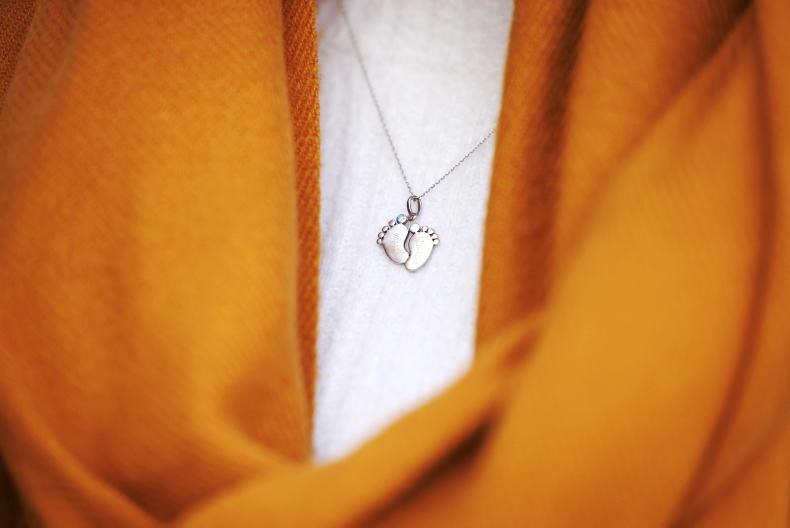
Aoife O' Connor wearing a necklace in honour of Darragh. \ Donal O' Leary
Aoife ended up going overdue, and was brought in for induction. Towards the end of her labour, however, her contractions appeared to stall and help was called to deliver Darragh.
Tragically, he was stillborn, and while doctors did manage to resuscitate him, Aoife and Michael were told that because he had been without oxygen for too long, Darragh was not showing any brain activity. He lived for three precious days before life support was switched off; each moment etched in Aoife’s memory.
“He was so beautiful,” she smiles through her tears.
“I’d say we have 1,000 photos, literally, and we knew that every single second was precious. Somebody was holding him all the time, so he didn’t spend a second on his own for the whole time that he was here.”
Turning to Mairie for a moment, we ask how she coped with seeing her daughter go through the same experience.
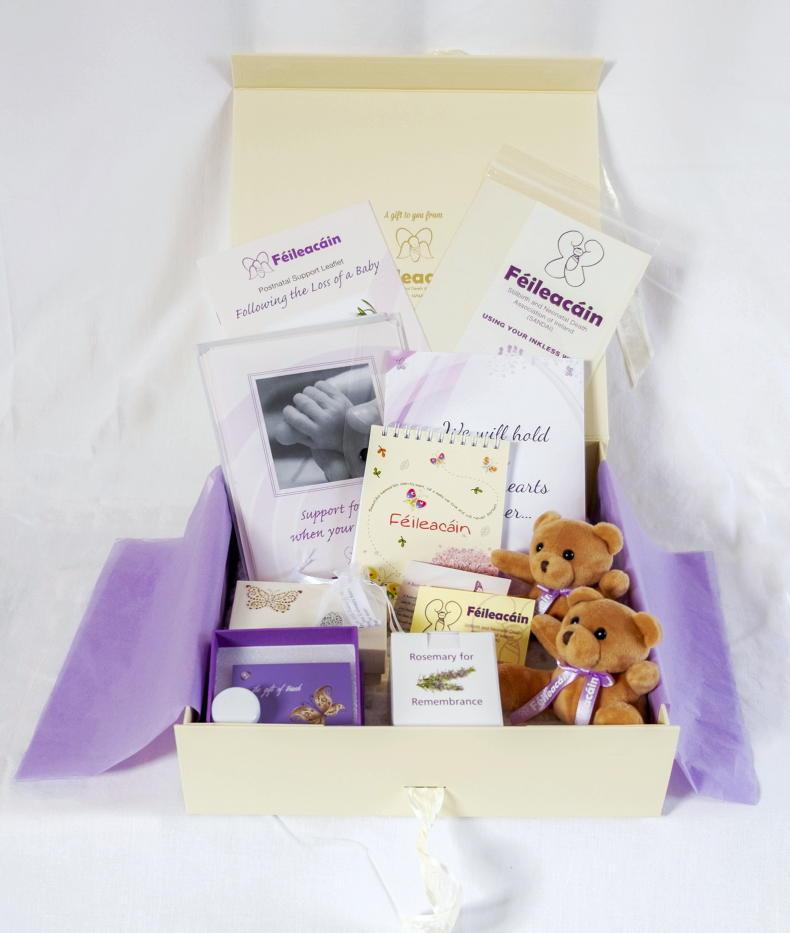
Féileacáin distributes memory boxes to maternity units across Ireland
“All you want to do is carry it for them; but you can’t,” she acknowledges.
“We took beautiful handprints; I took them myself… we did everything we could. He was absolutely beautiful and everybody met him, so he was very real; and he still is.”
For Aoife, the support of Mairie, the family and Féileacáin was crucial. She recalls in particular receiving a scrapbook of pictures from bereaved mothers of Darragh’s name.
“Darragh’s name in the snow, Darragh’s name in the flowers, Darragh’s name in people’s gardens and messages from bereaved parents… I still read it now,” she says. “It was really, really important.”
Never too late
Like Mairie, Aoife feels she has never definitively resolved what happened with Darragh despite a post mortem and inquest, though she later found out that her placenta displayed some abnormalities.
About five months after his birth, however, she became pregnant again and was expertly looked after by the team at CUMH, including consultant Dr Keelin O’Donoghue and clinical bereavement midwife specialist Orla O’Connell, with baby Dáithí arriving safely by C-section in March 2021. She is currently expecting her third baby.
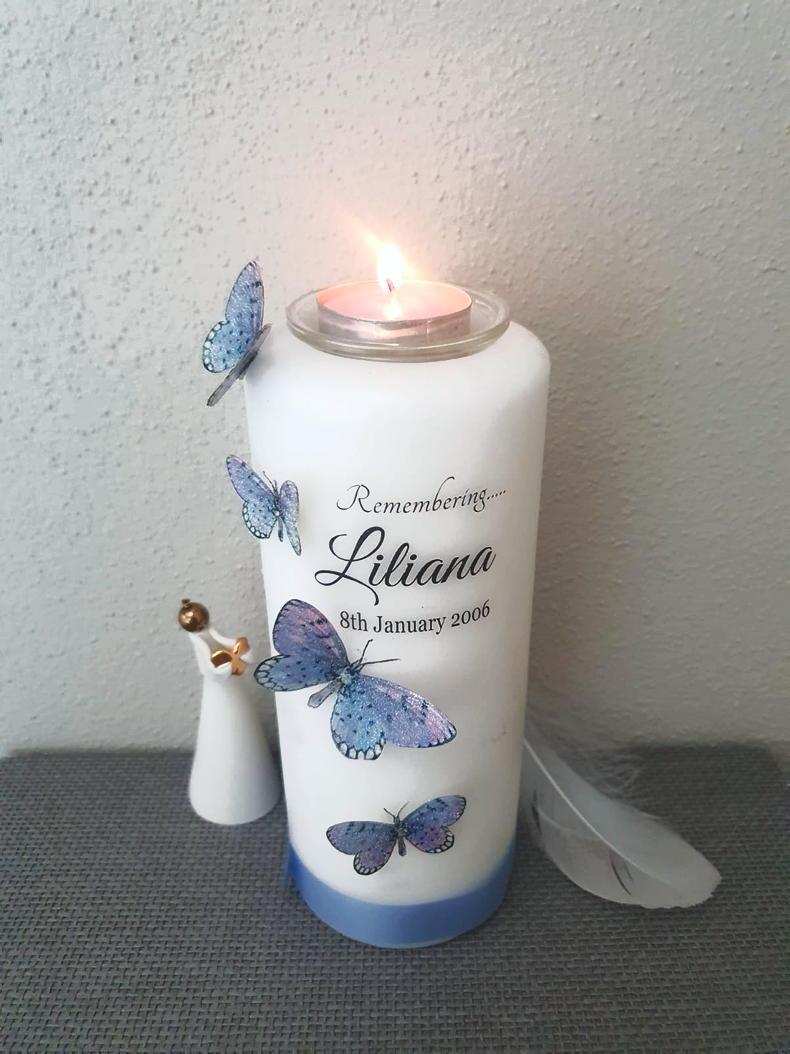
Féileacáin also organises personalised candles for families impacted by baby loss
Sadly, the family experienced another blow when their daughter Mitrusa- who they had fostered long-term from Romania- passed away in January 2021 from cardiac issues.
“She was the funniest [person],” says Mairie. “She was heartbroken over Darragh because she loved being an auntie.”
Needless to say, Mother’s Day is complex for Mairie and Aoife; but they also acknowledge that it’s not an easy day for many people.
“Every second person finds it hard because they’ve lost their mother, they aren’t a mother, they could be adopted, they could have placed a child for adoption, they could have their children in care… there’s so many reasons,” says Mairie.
“So, what I do is I simplify it… it can be a day of looking after yourself and mothering yourself.”
For the upcoming weekend, the family are planning what they call “Darragh Days”: where they get together and do an activity in Darragh’s memory, like go for a walk, paint fairy houses or simply go “to the beach and write his name in the sand,” explains Aoife.
“They are just so important because sure, you’d just be talking about him all day,” she smiles. “And it’s funny; he was only around for a couple of days, but you could stay talking about it forever.”
But both Liliana and Darragh’s legacies will always live on in their mothers’ work with Féileacáin.
“I suppose Féileacáin is Liliana’s camogie or swimming,” smiles Mairie; who wishes to end the interview by encouraging any bereaved parent to reach out to the organisation, no matter how long ago their loss occurred.
“It’s never too late to acknowledge what happened to you or what happened your baby. People who break my heart are the long ago bereaved who left the hospital with the same traumatic experience that we had,” she says.
“It’s not too late.”
More info
To find out more
about Féileacáin or to
make a donation, visit
www.feileacain.ie or
call 028-51301.
Read more
Rise: a love that will last a lifetime
Finding resilience after the loss of a baby
“You won’t have heard of Féileacáin, more than likely, unless you have been touched by us,” responds Mairie Cregan, when Irish Country Living asks how she would describe the support organisation that she co-founded.
She pauses. Then qualifies.
“What I should say there is I hope you never have to hear of us.”
That is because Féileacáin is the stillbirth and neonatal death association of Ireland, supporting families who have lost a baby in the second and third trimester or neonatally.
But while most people will hopefully never need to avail of their services, for those that do, Féileacáin- the Irish word for butterfly- plays a vital role in helping parents to create precious memories with their babies when time is all too short.
Mairie was one of seven bereaved parents who started the organisation in 2009, after the loss of her daughter, Liliana in 2006. Heartbreakingly, history would repeat itself- 14 years and 14 days later- when her daughter, Aoife, lost her son Darragh in 2020.
Such a loss binds this mother and daughter in ways few could ever imagine. But through Féileacáin, Liliana and Darragh’s legacies of love live on through their mothers’ dedication to supporting families impacted by baby loss.
Baby Liliana
I should confess that this is not my first time meeting Mairie.
When my son Danann was stillborn in October 2019, having been diagnosed with a life-limiting condition in pregnancy, Mairie was one of the volunteers who came to the hospital to take his tiny hand and footprints so tenderly.
The Féileacáin memory box that we received contained a crocheted white blanket that we wrapped Danann in for his christening, a tiny box to save a lock of his hair and balm to rub on to his rosebud lips amongst other keepsakes. Later, we received a beautiful candle with his name on it, designed to hold a tea light so that it never burns down. We’ve since attended services to honour Danann and other babies gone too soon, and participated in the Wave of Light initiative organised each October on Pregnancy and Infant Loss Awareness Day.
But perhaps the most important thing to me is that Mairie has never forgotten Danann’s name. She never forgets any baby’s name. They appear to be tattooed indelibly across a heart that has a seemingly limitless capacity for compassion.
A social worker in the adoption services and part-time lecturer at UCC, Mairie and her husband David live near Skibbereen, where David also runs a dairy and mixed farm with their son, Rory.
As well as raising their biological children- of which Liliana was number seven- Mairie and David also fostered from their early 20s, with many of the children staying long-term and forever part of the family.
Liliana was due in January 2006, but while the pregnancy was trouble-free, in retrospect, there was reduced fetal movement in the final weeks, followed by changed fetal movement in her last days.
“She was struggling,” says Mairie, of what they know now. “The following day, she got very quiet and then I went [for a scan] the next day, Friday 6 January, and she was gone.”
Mairie remembers that scan in forensic detail. “And the loneliest sight you will ever see is that blank screen,” she says, so simply.
Returning the next day to give birth, Mairie has never forgotten the kindness of the midwife who helped her through her delivery.
“The compassion, the kindness, the knowledge, the softness,” she recalls. “It’s the reason I got through it.”
While Mairie had no previous experience in baby loss, she was able to draw on her professional training in grief to make some memories with Liliana, such as taking her photograph and saving a lock of her hair. She also felt it was important for the other children to meet their little sister.
We ask Aoife how important this was for the siblings.
“It wasn’t ever brushed under the rug,” she reflects. “I think if we hadn’t met her, oh my God, it would have been so, so different. It would have been awful. It was very important to meet her.”
Starting Féileacáin
Mairie was not encouraged to have a post-mortem at the time, so she never found out why Liliana died. Years later, a perinatal pathologist told her that from her notes, it looks like her placenta failed, though she can never be fully sure.
While trying to come to terms with her loss, Mairie was grateful for the support of family and friends, but also from other people impacted by baby loss.
“Friends become strangers and strangers become friends at a time like this,” she says, with Mairie and six other parents coming together to establish Féileacáin in 2009 to provide nationwide support.
“There was nothing outside of Dublin,” says Mairie, who credits the support of Cork University Maternity Hospital in the organisation’s early days.
Today, Féileacáin supplies between 800-1,000 memory boxes each year, as well as providing “cuddle” or cooling cots to maternity units, which allow parents to keep their babies close to them for as long as possible. Other services include hand and footprint taking, support groups, remembrance services and support for staff impacted by baby loss.
Crucially, help is also available to the “long ago bereaved”, who may never have had their loss recognised.
“A lot of people will say, ‘It’s so long ago, what does it matter?’ But it’s not,” she emphasises. “It’s like yesterday for most of us.”
Baby Darragh
Féileacáin is funded by donations, and run by tireless volunteers; including the rest of the Cregan family. But little did they ever think they would be leaning on the charity themselves.
In early 2020, Aoife and her husband Michael were expecting their first baby, Darragh, who- like Liliana- was due in January.
“I absolutely loved it,” she recalls of her pregnancy. “Everything was perfect, healthy, every scan was no worries, no concerns.”

Aoife O' Connor wearing a necklace in honour of Darragh. \ Donal O' Leary
Aoife ended up going overdue, and was brought in for induction. Towards the end of her labour, however, her contractions appeared to stall and help was called to deliver Darragh.
Tragically, he was stillborn, and while doctors did manage to resuscitate him, Aoife and Michael were told that because he had been without oxygen for too long, Darragh was not showing any brain activity. He lived for three precious days before life support was switched off; each moment etched in Aoife’s memory.
“He was so beautiful,” she smiles through her tears.
“I’d say we have 1,000 photos, literally, and we knew that every single second was precious. Somebody was holding him all the time, so he didn’t spend a second on his own for the whole time that he was here.”
Turning to Mairie for a moment, we ask how she coped with seeing her daughter go through the same experience.

Féileacáin distributes memory boxes to maternity units across Ireland
“All you want to do is carry it for them; but you can’t,” she acknowledges.
“We took beautiful handprints; I took them myself… we did everything we could. He was absolutely beautiful and everybody met him, so he was very real; and he still is.”
For Aoife, the support of Mairie, the family and Féileacáin was crucial. She recalls in particular receiving a scrapbook of pictures from bereaved mothers of Darragh’s name.
“Darragh’s name in the snow, Darragh’s name in the flowers, Darragh’s name in people’s gardens and messages from bereaved parents… I still read it now,” she says. “It was really, really important.”
Never too late
Like Mairie, Aoife feels she has never definitively resolved what happened with Darragh despite a post mortem and inquest, though she later found out that her placenta displayed some abnormalities.
About five months after his birth, however, she became pregnant again and was expertly looked after by the team at CUMH, including consultant Dr Keelin O’Donoghue and clinical bereavement midwife specialist Orla O’Connell, with baby Dáithí arriving safely by C-section in March 2021. She is currently expecting her third baby.

Féileacáin also organises personalised candles for families impacted by baby loss
Sadly, the family experienced another blow when their daughter Mitrusa- who they had fostered long-term from Romania- passed away in January 2021 from cardiac issues.
“She was the funniest [person],” says Mairie. “She was heartbroken over Darragh because she loved being an auntie.”
Needless to say, Mother’s Day is complex for Mairie and Aoife; but they also acknowledge that it’s not an easy day for many people.
“Every second person finds it hard because they’ve lost their mother, they aren’t a mother, they could be adopted, they could have placed a child for adoption, they could have their children in care… there’s so many reasons,” says Mairie.
“So, what I do is I simplify it… it can be a day of looking after yourself and mothering yourself.”
For the upcoming weekend, the family are planning what they call “Darragh Days”: where they get together and do an activity in Darragh’s memory, like go for a walk, paint fairy houses or simply go “to the beach and write his name in the sand,” explains Aoife.
“They are just so important because sure, you’d just be talking about him all day,” she smiles. “And it’s funny; he was only around for a couple of days, but you could stay talking about it forever.”
But both Liliana and Darragh’s legacies will always live on in their mothers’ work with Féileacáin.
“I suppose Féileacáin is Liliana’s camogie or swimming,” smiles Mairie; who wishes to end the interview by encouraging any bereaved parent to reach out to the organisation, no matter how long ago their loss occurred.
“It’s never too late to acknowledge what happened to you or what happened your baby. People who break my heart are the long ago bereaved who left the hospital with the same traumatic experience that we had,” she says.
“It’s not too late.”
More info
To find out more
about Féileacáin or to
make a donation, visit
www.feileacain.ie or
call 028-51301.
Read more
Rise: a love that will last a lifetime
Finding resilience after the loss of a baby








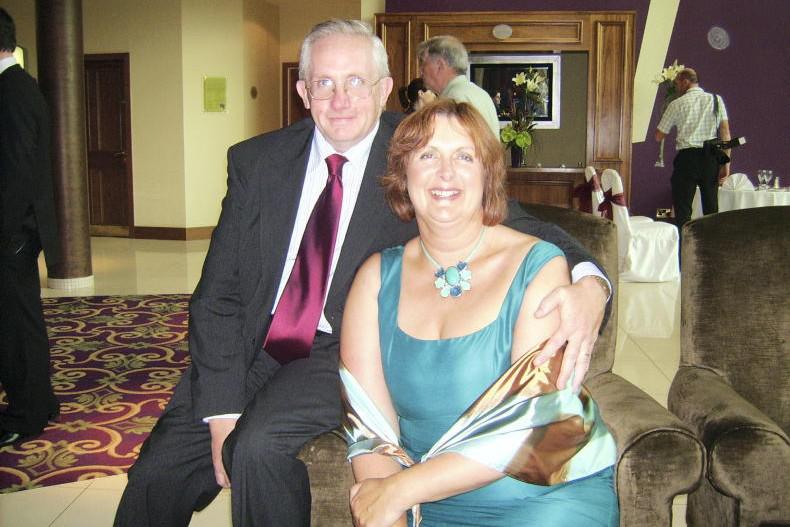

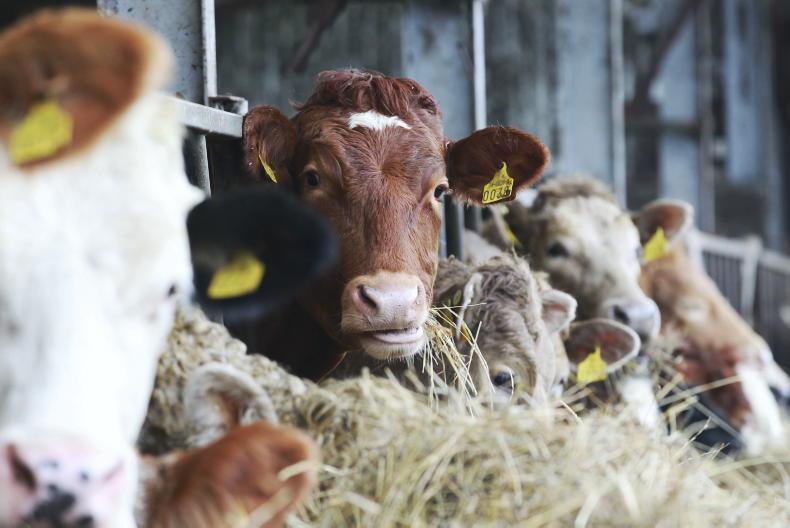
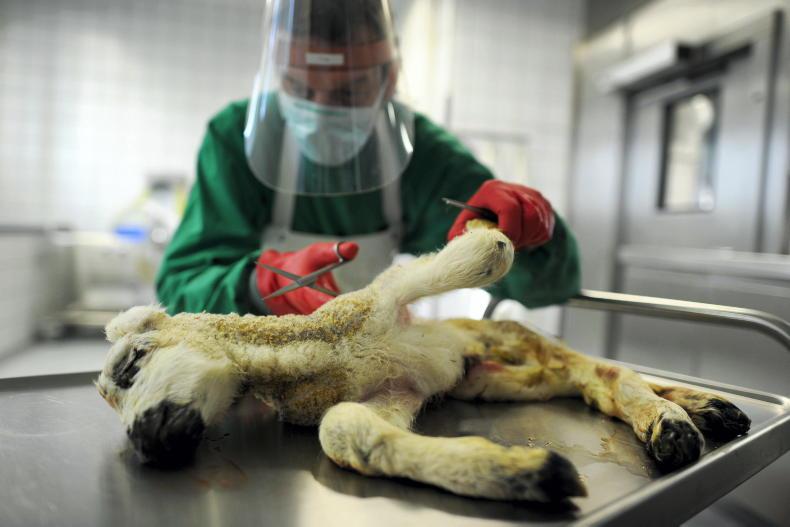
SHARING OPTIONS